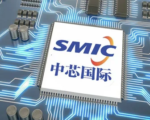“Apple’s 2nm Chipset Plans for iPhone 17 Pro May Face Delays as TSMC Struggles with Wafer Yield Issues”
Apple’s anticipated use of 2nm chipsets for its iPhone 17 Pro models may not come to fruition as originally planned. A recent report indicates that the company could be forced to delay this milestone by as much as 12 months due to ongoing wafer yield challenges faced by TSMC, its exclusive chip supplier. These setbacks have led to delays in the certification process for mass production of the 2nm chips, pushing the expected application process for the new technology potentially to 2026.
The report highlights that, while Apple had previously planned to enter mass production of the advanced 2nm chips for its upcoming iPhone 17 or iPhone 18 series, it has yet to commence the production phase. TSMC, the world’s leading chipmaker and Apple’s primary supplier for both iPhone and Mac processors, remains ahead of its competitors, including Samsung Electronics, in customer acquisition and yield performance. Despite its leadership in the market, however, TSMC is still encountering significant challenges with wafer yield, which is essential for ensuring the reliability and performance of the chips.
Further complicating the situation is the increasing demand for testing as the 2nm process remains in its developmental phase. The cost for customers looking to test these chips is reportedly rising, reflecting the difficulty in achieving stable production. In response to these challenges, TSMC is reportedly investing in expanding its facilities, with plans to ramp up production to around 130,000 units by 2026. This includes investments in its Arizona facility to boost global productivity, with an additional 20,000 units expected to be produced, bringing the total capacity to 140,000 units worldwide.
While the delay may shift Apple’s timeline for the iPhone 17 Pro, the company’s long-term vision for integrating 2nm chips remains intact. The advancements promised by these chips, such as improved performance and energy efficiency, are likely to be key selling points for future Apple devices. However, the delay underscores the complexities and high stakes involved in pushing the boundaries of semiconductor technology.


















